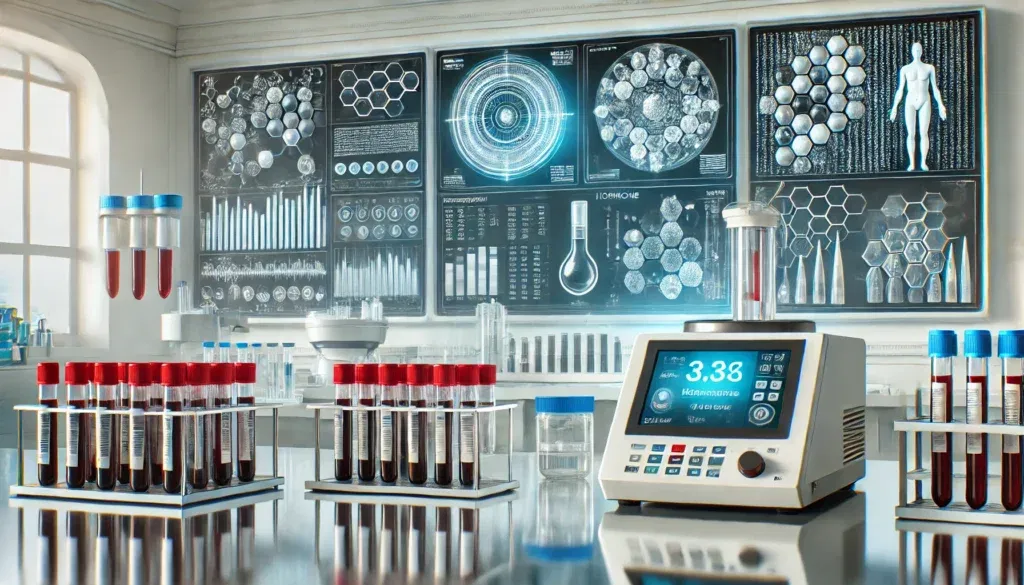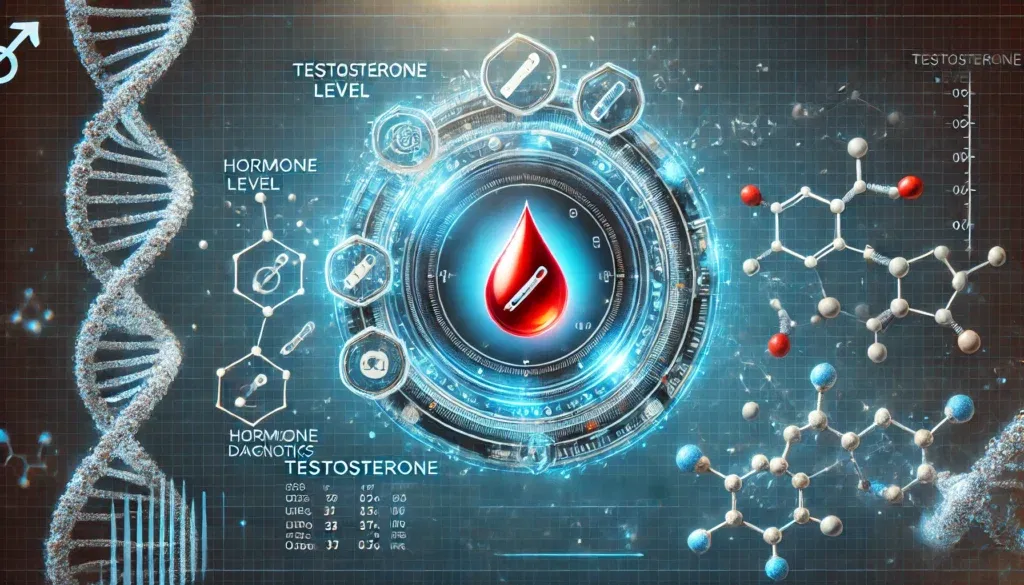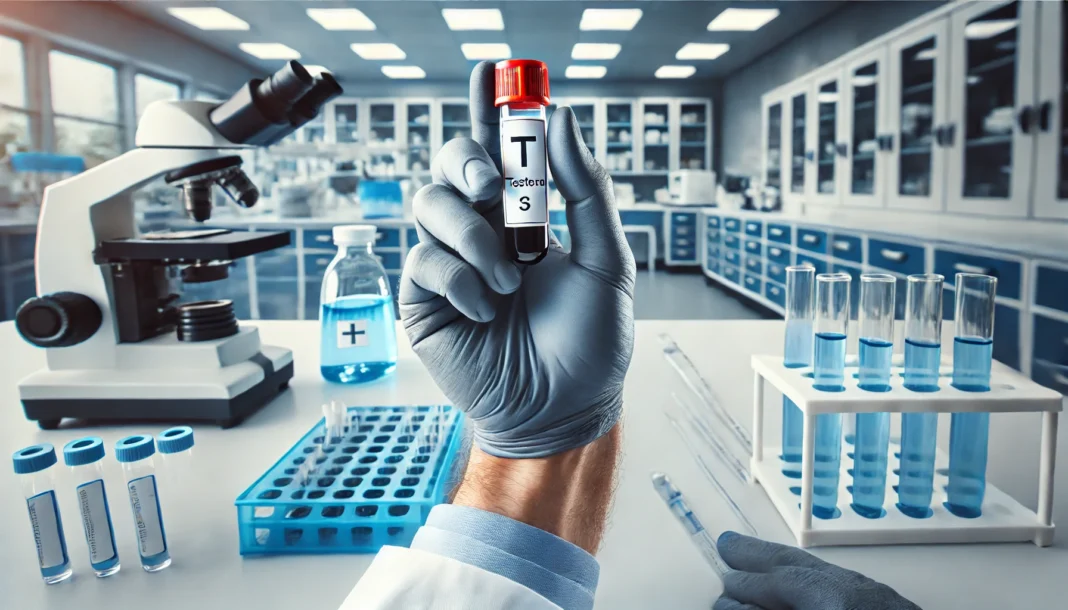Understanding the cost and accuracy of testosterone testing at Quest Diagnostics is crucial for anyone seeking to monitor their hormone levels for medical or personal health reasons. Quest Diagnostics is one of the largest diagnostic testing providers in the United States, offering a range of blood tests, including comprehensive testosterone assessments. While many factors influence the cost of a testosterone test, including the specific type of test ordered, insurance coverage, and location, gaining clarity on these aspects ensures that individuals make informed decisions regarding their health.
Yu may also like: How to Get Your Testosterone Levels Checked: Best At-Home and Lab Testing Options
The Importance of Testosterone Testing
Testosterone is a vital hormone that plays a significant role in various bodily functions, particularly in men’s health. It influences muscle mass, bone density, libido, mood, and overall energy levels. While testosterone is primarily associated with male reproductive health, it is also present in females, albeit at lower levels. A testosterone imbalance, whether excessive or deficient, can lead to numerous health concerns, making accurate and accessible testing an essential part of hormonal health management.
Many people seek testosterone testing to diagnose conditions such as hypogonadism, monitor hormone replacement therapy (HRT), or investigate symptoms like fatigue, depression, erectile dysfunction, or reduced muscle mass. Medical professionals often recommend testing for individuals experiencing unexplained symptoms that may be linked to testosterone deficiencies or excesses. The accuracy and reliability of such tests are crucial in forming treatment plans, making the cost of testing a worthwhile consideration.

Types of Testosterone Tests at Quest Diagnostics
Quest Diagnostics offers different types of testosterone tests, each designed to measure various aspects of hormone levels. Understanding the differences among these tests can help patients and healthcare providers select the most appropriate option based on medical needs and budget.
One common test available is the Testosterone Total Test, which measures the total amount of testosterone circulating in the bloodstream. This test is often the first step in assessing hormonal balance and determining whether further analysis is necessary. Another option is the Testosterone Free and Total Test, which measures both the bound and unbound testosterone levels. Free testosterone, which is not attached to proteins like sex hormone-binding globulin (SHBG), represents the bioavailable portion of the hormone, meaning it is readily usable by the body.
Additionally, physicians may order a Bioavailable Testosterone Test, which measures both free and weakly bound testosterone, offering a more precise picture of active hormone levels. In some cases, Testosterone Fractionation tests may be necessary to differentiate between different types of testosterone present in the blood. Each of these tests provides valuable insights into hormone function and may be necessary depending on the symptoms or medical history of the individual undergoing testing.
How Much Does a Quest Diagnostics Testosterone Test Cost?
The cost of a testosterone test at Quest Diagnostics varies based on the type of test performed, the patient’s insurance coverage, and the location where the test is administered. Without insurance, a basic Testosterone Total Test can range between $50 to $150, while a Testosterone Free and Total Test typically costs between $100 and $250. More specialized tests, such as bioavailable testosterone or fractionation tests, can cost upwards of $200 to $400.
For individuals with health insurance, the cost may be significantly lower depending on their policy. Many insurance plans cover testosterone testing when deemed medically necessary, such as in cases of suspected hypogonadism or other endocrine disorders. However, out-of-pocket costs may still apply due to deductibles, copays, or limitations on coverage.
Patients can often reduce their expenses by using health savings accounts (HSAs) or flexible spending accounts (FSAs) to pay for testing. Some Quest Diagnostics locations also offer self-pay discounts for individuals without insurance. Additionally, patients should inquire about any promotional pricing or discounts available through third-party providers that facilitate lab test ordering.
Factors Affecting the Cost of Testosterone Testing
Several variables contribute to the overall cost of a testosterone test at Quest Diagnostics. First and foremost, the specific test ordered will influence the price. Basic testosterone tests are generally less expensive than comprehensive panels that include multiple measurements of hormone levels. Patients should discuss with their healthcare provider which test is most appropriate for their situation to avoid unnecessary costs.
Another factor that plays a role is geographic location. Pricing for medical services can differ significantly based on where the test is conducted. Urban areas with higher costs of living may have higher lab fees compared to rural locations. Additionally, some Quest Diagnostics locations may partner with independent labs that set their own pricing structures, further affecting cost variations.
Insurance coverage is another major determinant. While some health insurance plans fully cover testosterone testing when it is considered medically necessary, others may only partially cover the test or require prior authorization. Understanding the specific terms of an insurance policy can prevent unexpected expenses.
Finally, the method of ordering the test can impact the final price. Some patients may opt to have their physician order the test, which may result in insurance billing, whereas others may choose direct-to-consumer testing options. Some third-party lab services provide access to Quest Diagnostics tests at discounted rates, making it worthwhile to compare pricing before making a decision.
Accuracy and Reliability of Quest Diagnostics Testosterone Testing
When it comes to hormone testing, accuracy and reliability are paramount. Quest Diagnostics is known for employing rigorous testing methodologies to ensure precise results. Testosterone tests are conducted using liquid chromatography-tandem mass spectrometry (LC-MS/MS), a highly sensitive and specific method that reduces the likelihood of errors associated with immunoassay-based testing.
Quest Diagnostics follows stringent quality control measures to maintain consistency across all testing locations. The company’s adherence to Clinical Laboratory Improvement Amendments (CLIA) regulations ensures that their testing meets federally mandated standards for accuracy and reliability. Additionally, their laboratories participate in external proficiency testing programs, further validating the accuracy of results.
However, several factors can affect testosterone test results, including the time of day the test is conducted. Testosterone levels naturally fluctuate throughout the day, with peak levels typically occurring in the morning. As a result, healthcare providers often recommend taking the test between 7:00 AM and 10:00 AM for the most accurate measurement.
Certain medications, underlying health conditions, and lifestyle factors can also impact testosterone levels. For example, individuals using corticosteroids, anabolic steroids, or opioid medications may experience altered testosterone readings. Similarly, chronic illnesses such as obesity, diabetes, and hypogonadism can influence hormone levels. Patients should inform their healthcare provider of any medications or medical conditions before undergoing testing to ensure accurate interpretation of results.

Frequently Asked Questions (FAQ) About Quest Diagnostics Testosterone Tests
1. What factors influence the Quest Diagnostics testosterone test cost?
The cost of a Quest Diagnostics testosterone test depends on several factors, including the type of test performed, geographic location, and whether insurance covers the procedure. Prices can vary depending on whether the test measures total testosterone, free testosterone, or both. Additionally, costs may fluctuate based on whether the test is conducted as part of a broader hormone panel or ordered individually. Patients without insurance may find discounted rates through direct-to-consumer lab services. It is always best to check with Quest Diagnostics directly or consult with your healthcare provider to understand pricing specifics.
2. What is the recommended testosterone tube color for lab testing?
The appropriate testosterone tube color for blood sample collection is typically a red-top or serum-separator tube (SST). These tubes contain clot activators that help separate serum, which is necessary for accurate testosterone measurement. Proper tube selection ensures test validity and prevents errors in sample processing. Using the wrong tube type may lead to delays or inaccurate results, requiring a repeat blood draw. Patients should verify with their healthcare provider or Quest Diagnostics to confirm the correct tube color before their appointment.
3. How does the Quest Diagnostics testosterone test differ from at-home test kits?
A Quest Diagnostics testosterone test provides more precise and clinically validated results compared to at-home testosterone test kits. Laboratory-based testing follows stringent protocols and quality control measures, ensuring higher accuracy. At-home test kits, which typically use saliva or finger-prick blood samples, may have limitations in detecting subtle hormonal imbalances. Additionally, Quest Diagnostics offers a testosterone free total CPT code that helps differentiate between bound and unbound testosterone, providing a more comprehensive assessment. Consulting a healthcare provider is advisable for individuals seeking a detailed hormone analysis.
4. What is the testosterone CPT code, and why is it important?
The testosterone CPT code is a medical billing code used to classify laboratory tests for insurance and reimbursement purposes. Different CPT codes exist for total testosterone, free testosterone, and bioavailable testosterone tests. Having the correct testosterone CPT code is crucial for proper billing and ensuring insurance coverage, if applicable. Healthcare providers typically use these codes when ordering testosterone tests through Quest Diagnostics. Patients should verify CPT codes with their insurance provider to avoid unexpected out-of-pocket expenses.
5. How do I prepare for a Quest testosterone test?
Proper preparation ensures accurate results for a Quest testosterone test. Fasting is not usually required, but some physicians recommend morning testing when testosterone levels are at their highest. Certain medications, such as corticosteroids and opioids, may affect testosterone levels, so it is essential to inform the healthcare provider about any prescriptions. Engaging in strenuous exercise or consuming alcohol before the test may also impact results. Following specific preparation guidelines from Quest Diagnostics can help obtain reliable readings.
6. What is the difference between total and free testosterone, and how does it affect test selection?
Total testosterone measures all testosterone present in the bloodstream, including bound and free forms, while free testosterone assesses only the unbound, active form. Physicians may order a testosterone free total CPT code test to evaluate both metrics simultaneously. Understanding the balance between total and free testosterone is essential for diagnosing hormone disorders, fertility concerns, or low testosterone symptoms. Some medical conditions may alter binding proteins, making free testosterone a more accurate indicator of hormonal status. Quest Diagnostics offers various testosterone test options to suit different diagnostic needs.
7. Can women benefit from a Quest Diagnostics testosterone test?
Yes, women can benefit from a Quest Diagnostics testosterone test if they experience symptoms of hormonal imbalance. Elevated testosterone levels in women may indicate conditions such as polycystic ovary syndrome (PCOS) or adrenal disorders. Low testosterone in women can contribute to fatigue, reduced muscle mass, and decreased libido. The code for testosterone blood test helps ensure appropriate testing and billing for female patients. A healthcare provider can determine if testosterone testing is necessary based on symptoms and medical history.
8. Are Quest Diagnostics testosterone test results accurate and reliable?
Quest Diagnostics employs advanced laboratory techniques to ensure accurate and reliable testosterone test results. Their testing process includes internal quality control measures, state-of-the-art analytical equipment, and certified lab professionals. Additionally, the use of standardized testosterone CPT codes ensures consistency in testing and reporting. Despite these rigorous measures, factors such as sample handling and patient preparation can influence results. Patients should discuss any unexpected findings with their healthcare provider to determine if retesting or additional hormone evaluations are necessary.
9. How long does it take to receive results from a Quest testosterone test?
Results from a Quest testosterone test are typically available within 24 to 72 hours, depending on the type of test and laboratory workload. Some specialized tests, including those using a testosterone free total CPT code, may require additional processing time. Patients can access their results through Quest Diagnostics’ online portal or request a printed report from their physician. If results take longer than expected, contacting the lab or healthcare provider for an update is recommended. Timely follow-up ensures prompt interpretation and appropriate medical action if needed.
10. How can I lower or increase my testosterone levels naturally?
Lifestyle factors play a significant role in regulating testosterone levels. Regular exercise, particularly strength training and high-intensity interval training (HIIT), can boost testosterone production. A diet rich in healthy fats, lean proteins, and micronutrients such as zinc and vitamin D supports hormonal balance. Conversely, reducing stress, avoiding excessive alcohol consumption, and improving sleep quality can prevent testosterone decline. For those with clinically low testosterone, a Quest Diagnostics testosterone test can help assess the need for medical intervention. Consulting a healthcare provider is crucial for developing a personalized approach to hormone optimization.

Final Thoughts on Quest Diagnostics Testosterone Test Costs and Accuracy
Understanding the cost and accuracy of testosterone testing at Quest Diagnostics is essential for individuals seeking to monitor their hormone health. While the cost of testing can vary based on multiple factors, including insurance coverage and geographic location, knowing the available test options and pricing structures can help patients make informed decisions.
Quest Diagnostics provides reliable and precise testosterone testing using advanced methodologies, ensuring accurate results that can guide medical treatment. By considering factors such as test type, insurance benefits, and testing location, patients can effectively manage expenses while receiving high-quality diagnostic services. For those without insurance, exploring self-pay discounts or third-party testing services may offer additional cost savings.
Ultimately, prioritizing testosterone health through accurate testing and professional medical guidance can lead to improved well-being and a better understanding of one’s hormonal balance. Whether evaluating symptoms of low testosterone, tracking therapy effectiveness, or ensuring optimal hormonal health, Quest Diagnostics offers a valuable resource for comprehensive and accessible testosterone testing.
testosterone testing cost, hormone health assessment, lab test pricing, Quest Diagnostics testosterone evaluation, affordable testosterone testing, men’s health diagnostics, testosterone imbalance symptoms, hypogonadism diagnosis, hormone level measurement, accurate testosterone test, medical lab testosterone test, insurance coverage for lab tests, men’s hormone therapy monitoring, affordable lab tests near me, direct-to-consumer hormone testing, Quest Diagnostics test accuracy, self-pay lab testing options, endocrinology blood tests, hormone health check, testosterone deficiency symptoms
Further Reading:
Men’s Hormone Test Panel — Expanded
Understanding the cost of lab testing with Quest Diagnostics
Disclaimer: The information provided in this article is for general informational purposes only. The content does not constitute professional advice of any kind, including but not limited to medical, legal, or financial advice. HisHealthMag and its contributors make no representations or warranties regarding the accuracy, completeness, or reliability of the information presented. Always seek the advice of a qualified professional for any specific concerns or questions you may have. Neither HisHealthMag nor its authors assume any responsibility or liability for any actions taken based on the information provided in this article. The views and opinions expressed are those of the author(s) and do not necessarily reflect the official policy or position of HisHealthMag.





